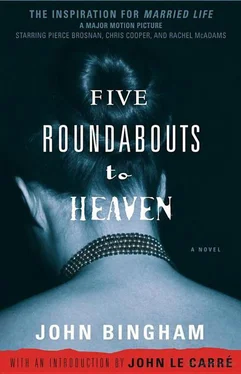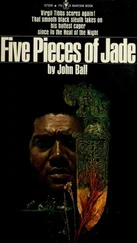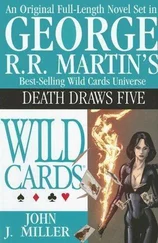John Bingham - Five Roundabouts to Heaven
Здесь есть возможность читать онлайн «John Bingham - Five Roundabouts to Heaven» весь текст электронной книги совершенно бесплатно (целиком полную версию без сокращений). В некоторых случаях можно слушать аудио, скачать через торрент в формате fb2 и присутствует краткое содержание. Жанр: Криминальный детектив, на английском языке. Описание произведения, (предисловие) а так же отзывы посетителей доступны на портале библиотеки ЛибКат.
- Название:Five Roundabouts to Heaven
- Автор:
- Жанр:
- Год:неизвестен
- ISBN:нет данных
- Рейтинг книги:4 / 5. Голосов: 1
-
Избранное:Добавить в избранное
- Отзывы:
-
Ваша оценка:
- 80
- 1
- 2
- 3
- 4
- 5
Five Roundabouts to Heaven: краткое содержание, описание и аннотация
Предлагаем к чтению аннотацию, описание, краткое содержание или предисловие (зависит от того, что написал сам автор книги «Five Roundabouts to Heaven»). Если вы не нашли необходимую информацию о книге — напишите в комментариях, мы постараемся отыскать её.
Five Roundabouts to Heaven — читать онлайн бесплатно полную книгу (весь текст) целиком
Ниже представлен текст книги, разбитый по страницам. Система сохранения места последней прочитанной страницы, позволяет с удобством читать онлайн бесплатно книгу «Five Roundabouts to Heaven», без необходимости каждый раз заново искать на чём Вы остановились. Поставьте закладку, и сможете в любой момент перейти на страницу, на которой закончили чтение.
Интервал:
Закладка:
I only saw two examples of it at the chateau. Once, during a visit to one or two of the more historic chateaux of the Loire, we stopped by the wayside for a picnic.
We spread some rugs in a field off the highway, and ate the food and drank the wine; and afterwards lay about for a while, smoking and talking and joking. In due course, one or two of the more active spirits began to lark about.
I think it was Danish Hans who crept up behind Bartels and flung a rug over his head and held him tight within its folds. I shall never forget the wild struggle which ensued, the sight of Bartels’ thrashing arms and legs, the upsetting of the wine bottle and picnic utensils, and, when he finally released himself, Bartels’ eyes, at first wild with terror and then hot and angry.
“Don’t ever do that again,” he said, and got up and walked some distance away and sat down by himself. We looked at each other silently, as people often will who find themselves in the presence of something they don’t understand. Nobody said anything. And in due course, though still somewhat subdued, we went upon our way.
The other occasion was when we were playing some hide-and-seek kind of game one evening. Somebody, I forget whom, knowing that Mary and Bartels were hiding together in a bedroom, locked the door on them, proposing to make a joke of it later, and to tell Bartels that he would have to marry the girl now.
But it didn’t work out that way.
We had to unlock the door almost at once in answer to the terrible, incessant banging upon it, and the unnaturally high-pitched shouts of Philip Bartels from within.
Later, I asked Mary what had happened, but she wouldn’t discuss it. She just said: “I don’t think he likes being locked in. Some people have that fear. Claustrophobia, or something.”
She quickly changed the subject. I formed the impression that what she had seen had been so upsetting that she did not wish to talk about it.
Chapter 2
I am, I believe, the only person who is in a position to record the full facts about Philip Bartels. One other person thinks he knows them, but he doesn’t. For one thing, he doesn’t know that I am, I suppose, a murderer, and one who carried out his crime under the nose of a police officer who, to this day, is quite unaware of the fact.
I know the facts because I was so intimately acquainted with all the people in the affair. I still am, for that matter, but for obvious reasons I have used fictitious names for everybody, including myself. Indeed, especially for myself, for I am nothing if not prudent.
The reconstruction of the story, then, is simple enough, but I may, I suppose, be attacked for daring to portray the thoughts which went on in the mind of Philip Bartels. How, I may be asked, do I know what went on in his mind?
I might defend myself by saying that I knew Bartels better than anybody else ever knew him; that I knew his mind better than I knew the mind of any of my other friends; that twenty-eight years is a long time to know anybody.
But I must record, with respect, and without in any way wishing to appear rude, that I am largely indifferent as to whether I am attacked or not.
That is because-and here again I state the fact with the utmost diffidence-I am recording this business mostly for my own benefit; for my own peace of mind, perhaps. I myself did not play a noble role, and I want to get it all down on paper.
I, Peter Harding, am a proprietor of hotels, comparatively young, but comparatively successful, and I am used to having things down on paper. I like it that way. I don’t like carrying things in my head.
One other thing I know, now that the visit to the chateau is past: although I went there at first from nostalgic and other reasons, I hadn’t been there long before I realized that I was edging closer and closer to a solution to the one problem which had always baffled me: why a man of Bartels’ nature acted as he did.
I shall never forget my feeling of rising excitement as, little by little, I drew nearer to the answer to the last riddle surrounding the strange personality of Philip Bartels.
Chapter 3
All living things need love. Even plants reach up for the caresses of the sun’s rays. Children and young people need it more than others, so that affection and a sense of security, though important, are no substitute for the real thing. I think that Bartels craved love in later days because, unlike myself, he was starved of it in an early age.
I first met him when we were ten years old and day boys at a little school in York. Then, as later, he was no beauty. He was a little frog-faced chap, with gold-rimmed spectacles, and then, as later, he was of only medium height, and weedily built. During his first two terms he was badly bullied, and I took part in the bullying, and thought it rather fun.
We used to roll him up in the matting in the gymnasium and bounce on him. There was a piano in the gymnasium, too, and singing lessons took place there, and sometimes, for a change, we would poke him under the vaulting horse and keep him there the entire lesson.
Some psychologists say that if you know the cause of irrational fears you are as good as cured. Bartels suffered in afterlife from claustrophobia, which he ascribed to the vaulting horse incidents: but the knowledge didn’t cure him.
When school was over, we would lie in wait for him outside the premises, but after a while he grew to expect this, and would lurk about in the comparative safety of a classroom until time compelled us to go home. I remember to this day the sight of his pale little face pressed against the classroom window as he waited hopefully for us to leave. Poor little Bartels!
After a couple of terms we gave up bullying him, principally because he was a good-humoured fellow, and he and I became firm friends.
At that time my parents had rented a house at Dringhouses, on the outskirts of York. There was a field next door in which black pigs were kept and a stagnant pond. After I had stopped bullying Bartels, we united to bully the pigs by throwing mud balls at them, and occasionally, since this was soon after the First World War, we would play at naval battles with bits of wood on the pond.
During our last term at the school a play was produced in which I had the role of Julius Caesar and Bartels played Cassius. It used to amuse us greatly when I had to speak the famous words:
Let me have men about me that are fat;
Sleek-headed men and such as sleep o’ nights.
Yond Cassius has a lean and hungry look;
He thinks too much: such men are dangerous.
It never occurred to me then that Bartels could ever be a dangerous man. Even in those days he was such a kind-hearted and gentle chap.
For instance, we used to play a ludicrous card game called “Lams and Biffs,” in which we gambled, not for money but for our personal comfort or discomfort. At the end of the game, various winners inflicted upon various losers a number of whacks with a ruler to equal the points they had gained. Nobody much minded losing to Bartels, because you always got off with a few soft, perfunctory pats.
When we left the little school in York, we went to different preparatory schools, and later, to different public schools, but I still saw a tremendous lot of him in London during the school holidays.
My parents had a modernized flat in Kensington, and because they were gay and interested in everybody, and content with their lot, there was always a joke or two in the evenings, and a friend popping in for a talk and a cup of coffee.
But for Bartels it was different.
He was just thirteen when both his parents were killed in a train crash in France, and he was compelled to go and live with his aunt Emily, her sister, aunt Rose, and his uncle James, a retired colonel of the Somerset regiment, who, in addition to other acts of bravery, had married Bartels’ aunt Rose.
Читать дальшеИнтервал:
Закладка:
Похожие книги на «Five Roundabouts to Heaven»
Представляем Вашему вниманию похожие книги на «Five Roundabouts to Heaven» списком для выбора. Мы отобрали схожую по названию и смыслу литературу в надежде предоставить читателям больше вариантов отыскать новые, интересные, ещё непрочитанные произведения.
Обсуждение, отзывы о книге «Five Roundabouts to Heaven» и просто собственные мнения читателей. Оставьте ваши комментарии, напишите, что Вы думаете о произведении, его смысле или главных героях. Укажите что конкретно понравилось, а что нет, и почему Вы так считаете.












